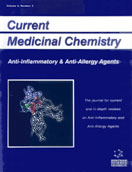Abstract
Comprising multiple organ-specific to systemic disorders and symptoms, autoimmune diseases include type 1 diabetes, rheumatoid arthritis, multiple sclerosis, systemic lupus erythematosus, scleroderma, thyroiditis, and others. There are also implications of autoimmune pathology in common health problems such as arteriosclerosis, inflammatory bowel diseases, psoriasis, schizophrenia, and certain types of infertility. Protein expression of the inducible nitric oxide synthase (iNOS) has been found in the majority of the above mentioned human autoimmune diseases or in animal models of these diseases, mostly in inflammatory cell infiltrates like activated macrophages, but also in organ-specific epithelial cells or in parenchymal cells. The role of NO in inflammation is very complex. On the one hand, NO mediates important direct cytotoxic effects and on the other hand it modulates immunological functions, which in the setting of autoimmune diseases may be beneficial. Current knowledge regarding the role of iNOS-derived NO in various human autoimmune diseases as well as in the respective animals models is reviewed here.
Keywords: autoimmune disease, type 1 diabetes, glomerulonephritis, inflammatory bowel disease, multiple sclerosis, nitric oxide, psoriasis, rheumatoid arthritis
 3
3

